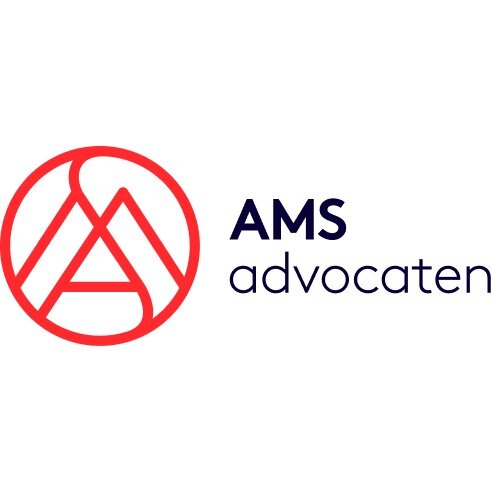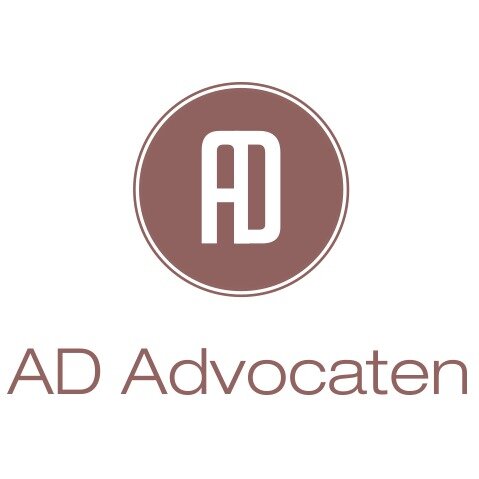Best Job Discrimination Lawyers in Amsterdam
Share your needs with us, get contacted by law firms.
Free. Takes 2 min.
List of the best lawyers in Amsterdam, Netherlands
About Job Discrimination Law in Amsterdam, Netherlands
Job discrimination in Amsterdam, as elsewhere in the Netherlands, is a critical issue addressed under various legal frameworks to promote equality and fairness in the workplace. Discrimination can occur at any stage of employment, from hiring and promotions to pay and termination. It encompasses unfair treatment based on race, gender, age, religion, sexual orientation, disability, and other protected traits. Employers are expected to foster an inclusive workplace and comply with stringent national and EU regulations aimed at combating discrimination.
Why You May Need a Lawyer
Engaging a lawyer can be instrumental in navigating job discrimination claims, especially when facing complex legal procedures or hostile work environments. Common situations where legal help may be required include being denied employment opportunities or promotions due to discrimination, experiencing workplace harassment, receiving unequal pay, or wrongful termination. A lawyer can aid in gathering evidence, ensuring your rights are protected, and represent you in legal proceedings if necessary.
Local Laws Overview
The Netherlands has robust legal protections against job discrimination, primarily derived from the Dutch Equal Treatment Act and the Employment and Equal Opportunity Protection Act. Key aspects include the prohibition of discrimination based on personal characteristics, mandatory equal pay for equal work, and requirements for reasonable accommodation for persons with disabilities. The Dutch Human Rights Institute serves as a monitoring body for discrimination cases, and it is advisable to seek their intervention if you believe your rights have been violated.
Frequently Asked Questions
What constitutes job discrimination in Amsterdam?
Job discrimination includes any unfair or unequal treatment in the workplace based on characteristics such as race, gender, age, religion, sexual orientation, and disability, among others.
How can I prove job discrimination?
Evidence can include direct statements, changes in employment status without valid reasons, statistical data, and documentation that indicates disparity in treatment compared to colleagues.
What should I do if I experience discrimination at work?
Firstly, document the incidents meticulously. Report the issue internally through your company's grievance procedure, and consider consulting with a legal expert for further guidance.
Can I file a claim anonymously?
While you can report discrimination anonymously to certain organizations, like the Dutch Human Rights Institute, pursuing a formal legal claim will usually require you to reveal your identity.
Is there a time limit for lodging a discrimination complaint?
Yes, it is advisable to act promptly, as claims must often be filed within a specific timeframe from the incident to be deemed valid. Legal advisors can provide specifics based on each case.
What remedies are available if my claim is successful?
Possible remedies include compensation for damages, reinstatement of employment, or mandatory changes to workplace policies to prevent future discrimination.
Can I negotiate a settlement out-of-court?
Yes, many discrimination cases are resolved through negotiation or mediation outside of court. A lawyer can assist in seeking an equitable settlement.
What is the role of the Dutch Human Rights Institute?
The Institute investigates discrimination complaints, provides recommendations, and offers support to those affected by unfair treatment while raising public awareness about discrimination issues.
Do I have to pay legal fees upfront?
Many Dutch lawyers provide an initial consultation for free or charge based on a contingency fee arrangement, meaning fees are collected only if you win your case. Discuss fee structures beforehand.
Is discrimination training mandatory for employers?
While specific training is not universally mandated, employers are encouraged to conduct anti-discrimination training to ensure compliance and foster a respectful work environment.
Additional Resources
For support with job discrimination issues, consider reaching out to the following resources:
- Dutch Human Rights Institute
- Netherlands Institute for Human Rights
- Anti-Discrimination Facilities (ADFs)
- Legal Aid Council (Raad voor Rechtsbijstand)
- Trade unions and employee assistance programs
Next Steps
If you believe you have been subjected to job discrimination in Amsterdam, seek legal advice from a qualified attorney specializing in employment law. Collect thorough documentation of all incidents, including dates, conversations, and witnesses, if possible. File a complaint with your HR department or employer as a first step. Then, contact the Dutch Human Rights Institute or another relevant organization for further assistance. Speedy action can strengthen your case, so do not hesitate to seek help immediately.
Lawzana helps you find the best lawyers and law firms in Amsterdam through a curated and pre-screened list of qualified legal professionals. Our platform offers rankings and detailed profiles of attorneys and law firms, allowing you to compare based on practice areas, including Job Discrimination, experience, and client feedback.
Each profile includes a description of the firm's areas of practice, client reviews, team members and partners, year of establishment, spoken languages, office locations, contact information, social media presence, and any published articles or resources. Most firms on our platform speak English and are experienced in both local and international legal matters.
Get a quote from top-rated law firms in Amsterdam, Netherlands — quickly, securely, and without unnecessary hassle.
Disclaimer:
The information provided on this page is for general informational purposes only and does not constitute legal advice. While we strive to ensure the accuracy and relevance of the content, legal information may change over time, and interpretations of the law can vary. You should always consult with a qualified legal professional for advice specific to your situation.
We disclaim all liability for actions taken or not taken based on the content of this page. If you believe any information is incorrect or outdated, please contact us, and we will review and update it where appropriate.














